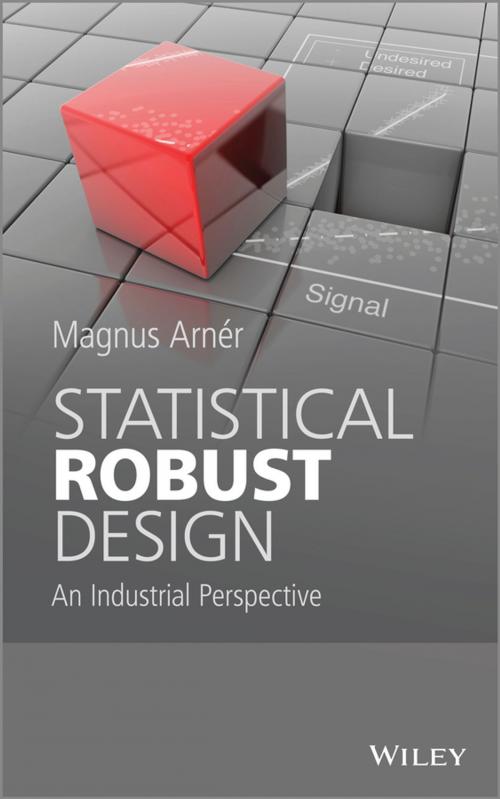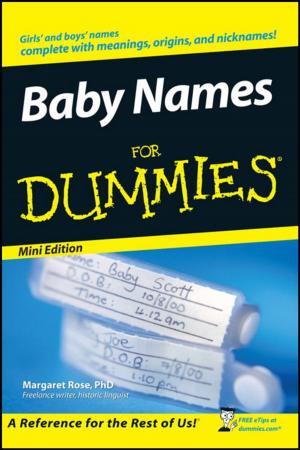Statistical Robust Design
An Industrial Perspective
Nonfiction, Science & Nature, Mathematics, Statistics| Author: | Magnus Arner | ISBN: | 9781118841952 |
| Publisher: | Wiley | Publication: | February 4, 2014 |
| Imprint: | Wiley | Language: | English |
| Author: | Magnus Arner |
| ISBN: | 9781118841952 |
| Publisher: | Wiley |
| Publication: | February 4, 2014 |
| Imprint: | Wiley |
| Language: | English |
A UNIQUELY PRACTICAL APPROACH TO ROBUST DESIGN FROM A STATISTICAL AND ENGINEERING PERSPECTIVE
Variation in environment, usage conditions, and the manufacturing process has long presented a challenge in product engineering, and reducing variation is universally recognized as a key to improving reliability and productivity. One key and cost-effective way to achieve this is by robust design – making the product as insensitive as possible to variation.
With Design for Six Sigma training programs primarily in mind, the author of this book offers practical examples that will help to guide product engineers through every stage of experimental design: formulating problems, planning experiments, and analysing data. He discusses both physical and virtual techniques, and includes numerous exercises and solutions that make the book an ideal resource for teaching or self-study.
• Presents a practical approach to robust design through design of experiments.
• Offers a balance between statistical and industrial aspects of robust design.
• Includes practical exercises, making the book useful for teaching.
• Covers both physical and virtual approaches to robust design.
• Supported by an accompanying website (www.wiley/com/go/robust) featuring MATLAB® scripts and solutions to exercises.
• Written by an experienced industrial design practitioner.
This book’s state of the art perspective will be of benefit to practitioners of robust design in industry, consultants providing training in Design for Six Sigma, and quality engineers. It will also be a valuable resource for specialized university courses in statistics or quality engineering.
A UNIQUELY PRACTICAL APPROACH TO ROBUST DESIGN FROM A STATISTICAL AND ENGINEERING PERSPECTIVE
Variation in environment, usage conditions, and the manufacturing process has long presented a challenge in product engineering, and reducing variation is universally recognized as a key to improving reliability and productivity. One key and cost-effective way to achieve this is by robust design – making the product as insensitive as possible to variation.
With Design for Six Sigma training programs primarily in mind, the author of this book offers practical examples that will help to guide product engineers through every stage of experimental design: formulating problems, planning experiments, and analysing data. He discusses both physical and virtual techniques, and includes numerous exercises and solutions that make the book an ideal resource for teaching or self-study.
• Presents a practical approach to robust design through design of experiments.
• Offers a balance between statistical and industrial aspects of robust design.
• Includes practical exercises, making the book useful for teaching.
• Covers both physical and virtual approaches to robust design.
• Supported by an accompanying website (www.wiley/com/go/robust) featuring MATLAB® scripts and solutions to exercises.
• Written by an experienced industrial design practitioner.
This book’s state of the art perspective will be of benefit to practitioners of robust design in industry, consultants providing training in Design for Six Sigma, and quality engineers. It will also be a valuable resource for specialized university courses in statistics or quality engineering.















